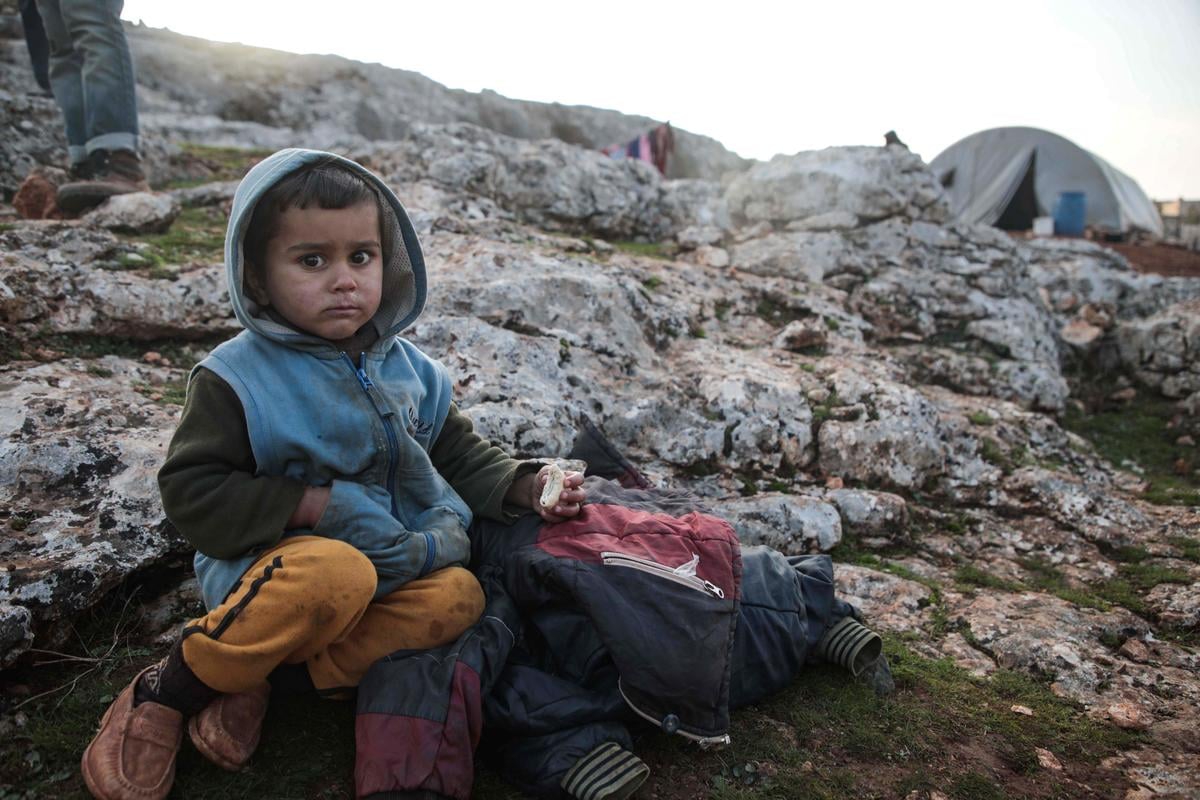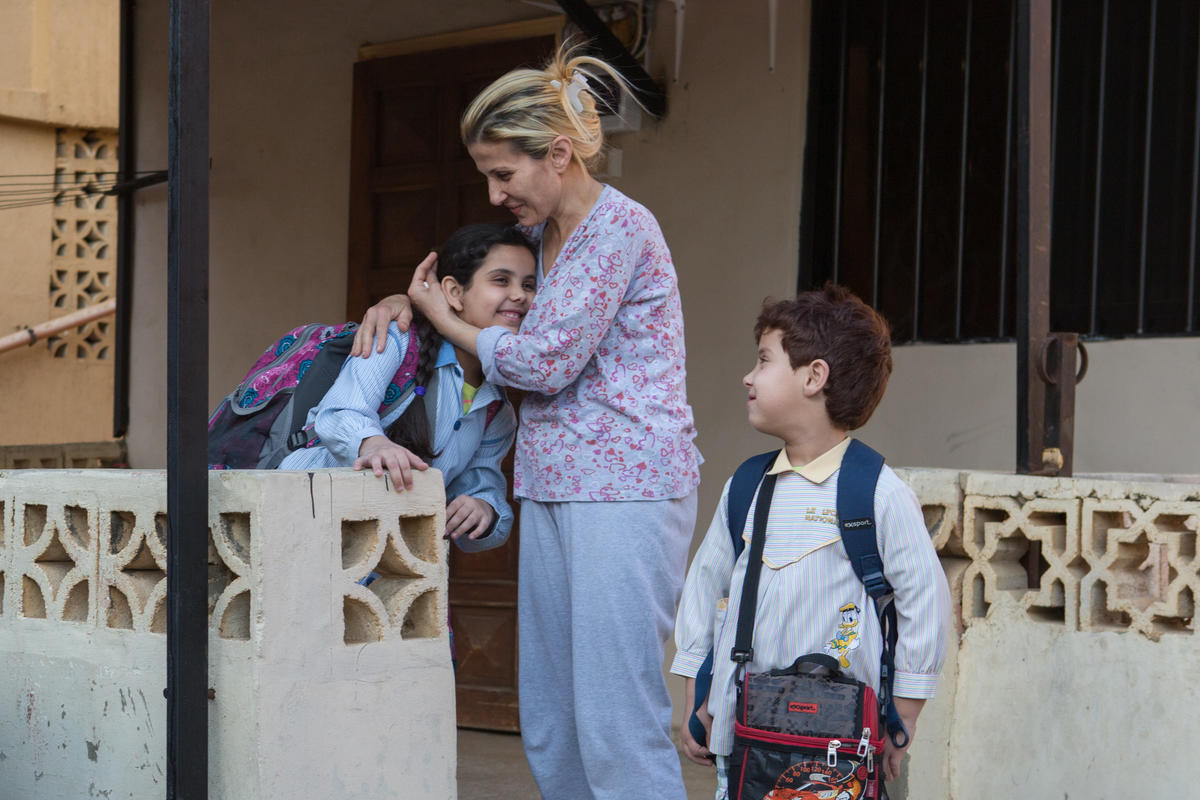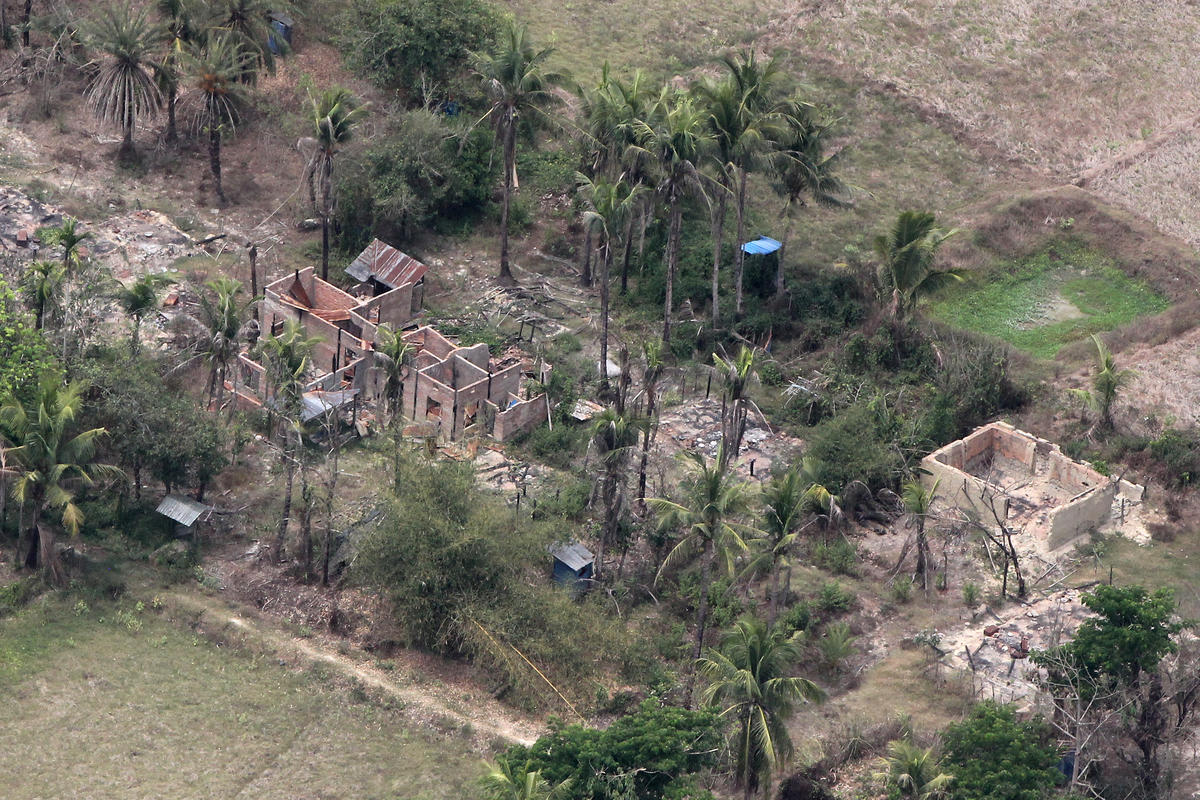Iraq Conference: UNHCR says conference agrees on urgent need to help the 4 million Iraqi displaced
Iraq Conference: UNHCR says conference agrees on urgent need to help the 4 million Iraqi displaced

GENEVA, April 18 (UNHCR) - An international conference organised by the UN refugee agency to focus on the humanitarian needs of those driven from their homes in Iraq ended on Wednesday with agreement on the urgent need to aid nearly 4 million people who have fled to neighbouring countries or elsewhere inside Iraq.
"There was truly a humanitarian spirit that allowed us to work together, to work together in a committed way for the same purpose - the people we care for, the Iraqis displaced inside and outside Iraq," UN High Commissioner for Refugees António Guterres told a concluding news conference after the gathering that drew representatives of 60 nations.
Guterres, who chaired the two-day meeting, said there had been recognition of the need to stem the continuing displacement of Iraqis while ensuring that those who are uprooted receive humanitarian assistance. He also said the conference agreed the international community had to help those neighbouring countries that are bearing most of the burden of hosting Iraqi refugees, especially Syria and Jordan.
"You have underlined the urgency of meeting the humanitarian needs of some 1.9 million internally displaced persons inside Iraq and 2 million refugees abroad, especially of women and children, confirming international recognition of the gravity of the situation," the head of UNHCR said in his closing summary to some 450 conference delegates.
Guterres also welcomed Iraq's announcement at the conference that it would launch a programme, worth US$25 million in the first phase, to assist displaced Iraqis. This would include establishing offices in host countries to assist Iraqi refugees in the health and education sectors as well as providing documents to enable access to services and travel.
"The [Iraqi] government is prepared and fully committed to take the lead in addressing the needs and improving the conditions of all Iraqi people who are internally and externally displaced," he said.
The conference opened with an appeal from UNHCR for a sustained, comprehensive and coordinated international response to the humanitarian crisis - the largest displacement of population since the war surrounding the creation of Israel in 1948.
Many Iraqis were displaced before the fall of the previous regime in 2003. Between 2003-2005, more than 300,000 Iraqis had returned home to begin rebuilding their lives but the trend has dramatically reversed, particularly since the Samarra bombing in February 2006. About 750,000 people are estimated to have fled their homes since that incident, with up to 50,000 more displaced each month.
"There has been broad recognition of the fact that local integration of such large numbers of Iraqis in countries of asylum is not an option, and that resettlement will give priority to the most vulnerable," Guterres said. "Everyone emphasised that the preferred solution for the overwhelming majority of Iraqi refugees will be their voluntary return."
"However, the conference called upon all host countries, including those further afield, to continue providing protection, humanitarian assistance and hospitality to Iraqis until such time as conditions have been created to enable voluntary return in safety and dignity," he told representatives of governments, international organisations and non-governmental organisations.
Guterres said specific concern was expressed about Palestinian refugees who have been displaced from their homes in Iraq. They have been targets of harassment since the fall of President Saddam Hussein in 2003 and many are now trapped at the borders of neighbouring countries - forced from their homes in Iraq, but refused entry to countries that already host millions of Palestinian refugees. The Iraqi government told the conference it would enhance protection of its Palestinian refugees.
Guterres said he hoped international gratitude for the burden assumed by host countries - with Syria hosting 1.2 million Iraqis and Jordan another 750,000 - would soon translate into financial support for the Iraqi refugees and their host countries. He also hoped to see an increased amount of resettlement to third countries, which is necessary for the most vulnerable refugees.
Humanitarian work inside Iraqi has been difficult because of the security situation, but the UNHCR chief said conference delegates had welcomed the recent approval of a Strategic Framework in Iraq agreed by the United Nations and its partners, which is designed to help expand assistance inside Iraq.
However, as Guterres had noted in his opening address, there was recognition that the humanitarian problems reflected the need for a political solution inside Iraq. "You have expressed a deep concern about the situation inside Iraq and called for urgent action by the Iraqi government and all relevant parties in order to find a durable solution based on national reconciliation," he said.








